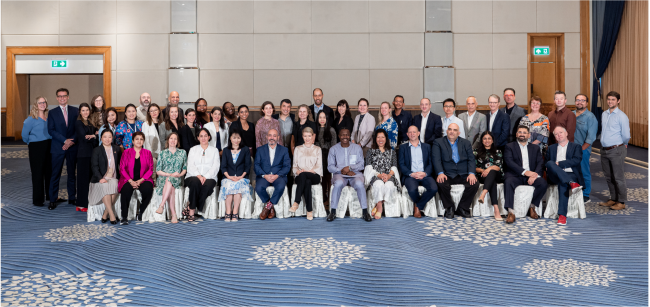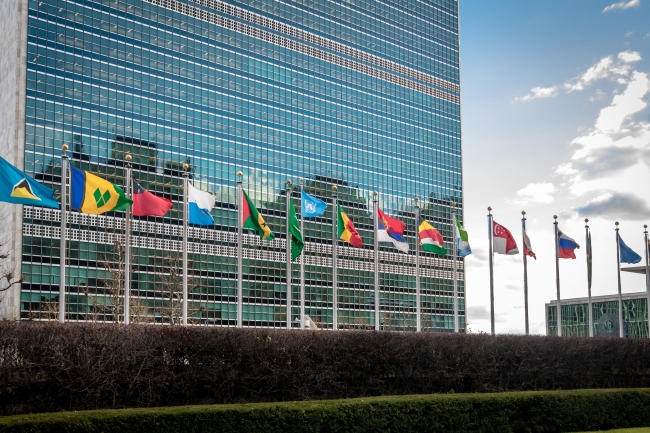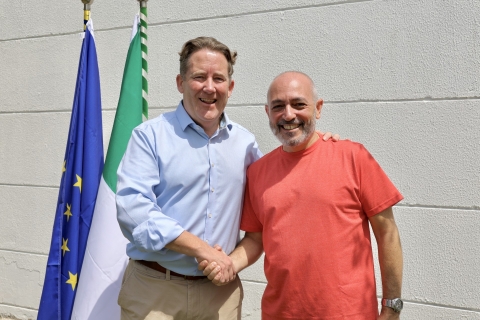From Risk to Remedy: Empowering Investors to Engage with Survivors of Modern Slavery
30 JULY, 2025

The UNDP Finance Against Slavery and Human Trafficking (FAST) Initiative has launched a global study aimed at establishing guidelines for investors to engage with survivors of modern slavery and human trafficking. Such engagement provides investors with insights on how to develop and implement human rights due diligence processes and operational-level grievance mechanisms.
Initiated in 2024, the study will culminate in the joint publication by the FAST Initiative and the UK Government’s Foreign, Commonwealth & Development Office (FCDO) of Investing the Rights Way: A Guide for Investors on Engaging with Survivors of Modern Slavery in autumn 2025. In line with the UN Guiding Principles on Business and Human Rights, this hands-on resource will offer insights for investors to identify survivors of modern slavery and meaningfully engage with them in order to inform risk management and investment decisions.
Bridging the Gap Between Policy and Practice
Without strong investor guidance, modern slavery continues to thrive unnoticed in global markets. Nearly 50 million people are currently trapped in modern slavery, including forced labour, forced marriage and human trafficking. These human rights abuses generate an estimated $236 billion per year in illicit profits – much of which moves undetected through the world’s financial systems.
Investors depend heavily on information provided either by the companies in which they invest or by third-party agencies. But these parties’ data may be incomplete, misleading or influenced by commercial interests. This is particularly evident in the pursuit of ethical investment capital, where sustainability claims may be overstated or presented selectively.
Human rights due diligence has become a widely recognized expectation for investors – driven by frameworks such as the UN Guiding Principles on Business and Human Rights, the Organisation for Economic Cooperation and Development (OECD) Guidelines for Multinational Enterprises, and emerging regulatory requirements like the EU Corporate Sustainability Due Diligence Directive and National Action Plans. However meaningful engagement of survivors in the design and implementation of grievance mechanisms remains limited. The forthcoming Guide seeks to address these critical gaps in protection, remedy and accountability.
Survivors offer vital intelligence. Their lived experience uncovers red flags that conventional risk tools can miss, such as how trafficking networks launder profits, or how coercion and exploitation manifest in sectors like apparel, critical minerals, tourism and agriculture.
Research to Inform Action
The FAST Initiative’s in-depth research included consultations with survivors of modern slavery and human trafficking, complemented by discussions with institutional investors, private equity firms, pension funds, environmental social and governance (ESG) data providers, development finance institutions, commercial banks, fintech companies and asset managers. Government stakeholders included ministries responsible for labour, justice, finance, and trade, along with financial regulatory and supervisory authorities. Civil society actors – particularly survivor-led networks and human rights organizations – played a central role in the process.
At the heart of this work is a commitment to translate international standards into actionable investment guidance. By documenting how exploitation occurs, how survivors lack access to remedy, and how investment practices can contribute to harm or prevention, the research is building an evidence base that bridges the gap between policy and practice –advancing human rights due diligence and accountability across global value chains.
Country-level Insights: Learning from the DRC
The Democratic Republic of the Congo (DRC) provides a compelling case study with context-specific insights. Home to over 65 percent of the world’s cobalt reserves, the DRC is a hotspot for mining-related exploitation.
The FAST Initiative and FCDO commissioned a team of experts that partnered with UNDP in DRC to consult stakeholders ranging from government ministries and mining companies to survivors, cooperatives, and civil society organizations. The team documented numerous human rights violations, including child labour, forced prostitution, and exploitative mining in areas where regulatory oversight is limited.
These findings underscore the need for stronger investor action in high-risk sectors – as well as for more inclusive and survivor-centric due diligence frameworks.
UNODC Voices of Resilience
A key milestone was FAST’s breakout session during the UN Office on Drugs and Crime (UNODC) Global Forum for Human Trafficking Survivors in June 2025. The session, From Survival to Independence: The Financial Sector’s Role in Survivor Empowerment and Access to Remedy, convened survivors, civil society, the Government and UN officials in Vienna to discuss how financial institutions can play a powerful role in identifying and addressing modern slavery risks. Participants stressed the value of engaging vulnerable populations, including survivors, who – as rightsholders – are entitled to remedy by states and by institutions.
Moving Toward More Ethical Finance
As the research phase nears completion the results confirm that investors are not just passive actors in the fight against modern slavery, but critical agents of change. Survivor-informed practices are not only a moral imperative, but also a smart investment in long-term sustainability.
The resulting Guide will offer actionable recommendations, including:
- Establishing trusted and transparent (operational) grievance mechanisms;
- Embedding survivor input into risk mapping and monitoring;
- Providing financial access and training to survivors; and
- Ensuring ethical conduct across portfolios and value chains.
The Guide will empower investors to move beyond check-box compliance toward deeper accountability, respect for dignity and systemic change.
Looking Ahead
The Guide’s launch in the Fall of 2025 will be followed by a global dissemination campaign involving survivors, key stakeholders, and FAST Initiative partners. With the publication of this Guide, the FAST Initiative and FCDO are calling on investors to place survivor voices at the heart of a more ethical, informed, and transparent financial system.
By integrating survivor voices into investment strategies, the financial sector can play a pivotal role in ending modern slavery. Working with survivors to facilitate the much-needed financial-sector reform, the FAST Initiative is leading the way in the inclusive design of action plans, policies, laws, and regulations.










